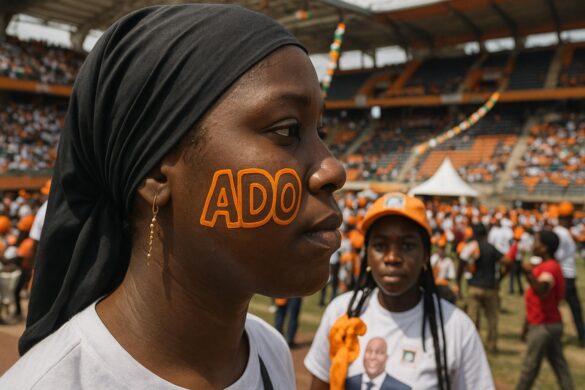Election Fever Grips Ivory Coast
In Abidjan, sound systems blast coupé-décalé rhythms while supporters sway under party flags, but behind this festive appearance, the October 23 presidential election weighs heavily on the world’s top cocoa exporter, analysts say.
The electoral commission confirmed five names on the ballot after excluding several heavyweights, a decision still being contested in national courts and the African Court of Human and Peoples’ Rights.
President Alassane Ouattara, 83, is seeking a fourth term, citing constitutional resets in 2016 and a promise of “continuity and stability” after an average annual growth of 6% since 2012.
Opponents argue the extended term risks eroding democratic trust, but they remain fragmented, giving the incumbent a clear front-runner status in most polls.
Ouattara Highlights His Growth Record
Ouattara’s campaign speeches highlight new highways, the Abidjan metro, and an upcoming LNG terminal designed to secure energy for factories processing half the country’s cocoa by 2028.
“Investors have maintained confidence because the reforms are credible,” the government spokesperson said, pointing to an oversubscribed Eurobond in February despite global market volatility.
Nevertheless, the World Bank estimates 39% of Ivorians live below the national poverty line, and opposition rallies frequently display this statistic on giant screens.
A recent poll places Ouattara at 48% of voting intentions in the first round, Billon at 20%, Simone Gbagbo at 17%, and undecided voters at 11%, suggesting a likely runoff despite the divided opposition.
At a rally in Yamoussoukro, businessman-turned-politician Jean-Louis Billon promised “jobs, not slogans.” His party, Code, highlights youth unemployment nearing 30% among graduates.
Opposition Challenges Exclusions
The Constitutional Council excluded former Credit Suisse CEO Tidjane Thiam due to rules on dual nationality, a verdict his lawyers call discriminatory against the diaspora, which sends $1.4 billion annually.
Former President Laurent Gbagbo, 79, also remains barred due to a 2018 conviction related to the Central Bank robbery during the 2010 crisis.
Simone Gbagbo’s rallies mix gospel choirs with passionate calls to rebuild neglected public schools since spending was redirected to infrastructure.
Charles Blé Goudé now backs Simone, urging voters to “finish the work started in 2000.” Analysts see his mobilization networks on university campuses as a potential asset.
Billon’s platform proposes tax exemptions for startups, a national venture capital fund capitalized at 300 billion CFA francs, and a gradual phase-out of fuel subsidies to reallocate resources to vocational training.
Security Fears Influence Voter Mood
Memories of the 2010 violence remain vivid. Figures show 1,200 military and police personnel have been redeployed to Abidjan, Bouaké, and Man to
